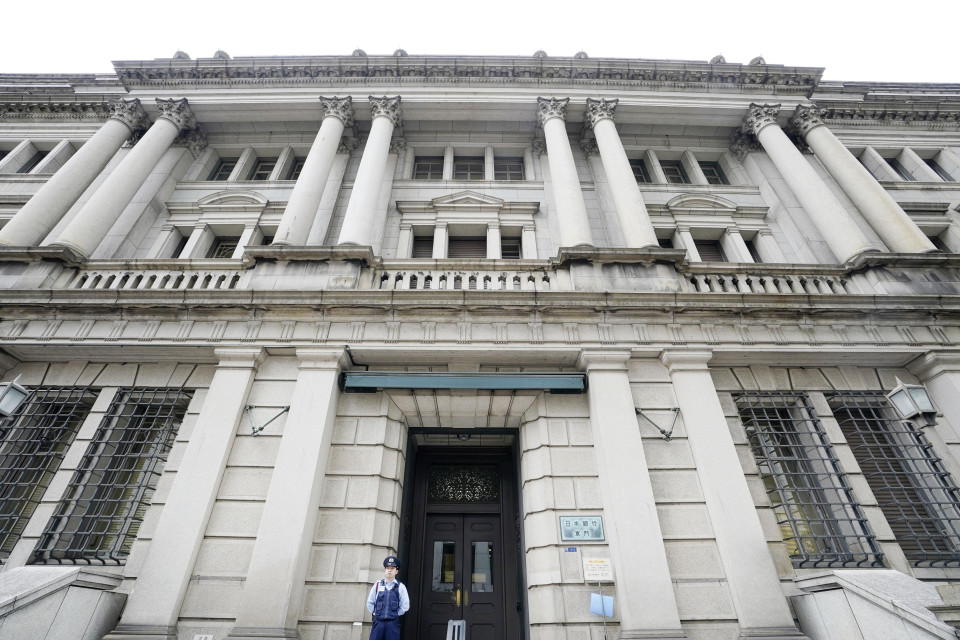Japan's core consumer prices rose 3.1 percent last year, marking the fastest pace of increase in 41 years, as the cost-of-living crisis deepened without robust wage growth, although inflation slowed in December, government data showed Friday.
The yearly increase in the nationwide core consumer price index came despite government subsidies to lower household utility bills, underscoring higher import costs that were inflated by a sharp drop of the yen, a byproduct of the Bank of Japan's monetary easing. Food prices rose 8.2 percent, the most in 48 years.
Without the government support that helped curb electricity prices by 13.0 percent, the highest on record, the core CPI would have risen 3.9 percent, according to the Ministry of Internal Affairs and Communications.

Either way, the key gauge of inflation remained above the BOJ's 2 percent target for the second straight year, as the Japanese central bank stuck to ultralow rates to create a virtuous cycle of price hikes accompanied by wage growth.
The recent bout of cost-push inflation, however, continued to show signs of slowing down, as December saw a 2.3 percent increase, down from 2.5 percent in November.
The gradual easing of inflation comes amid market expectations that the BOJ will end its negative interest rate policy as early as this spring, after confirming that the momentum for wage growth remains intact.
"The key question is whether consumption can hold up and allow more price hikes," said Yoshiki Shinke, senior executive economist at the Dai-ichi Life Research Institute.
"Weak consumption would mean slower inflation. It will still be difficult to see 2 percent inflation in a sustainable manner this year," he added.
Economists are keeping close tabs on developments in the services sector to gauge the sustainability of inflation. Accommodation fees surged 59.0 percent in December amid a revival of tourism following the lifting of COVID-19 restrictions.
The core-core CPI excluding both energy and fresh food, seen as a better reflection of underlying inflation, rose 3.7 percent.
Many BOJ watchers are expecting no change at its policy-setting meeting next week, when the central bank will release fresh inflation forecasts.
Ryosuke Katagi, a market economist at Mizuho Securities Co., said Japan may see its core CPI undershoot 2 percent, albeit briefly, in January.
"It won't become a hurdle for the BOJ in removing the negative interest rate," Katagi said, noting recent data suggests the main driver of inflation is shifting from higher import costs to a virtuous cycle of pay hikes and wage growth.
Business leaders appear willing to raise wages at the annual wage negotiations with labor unions that will kick off next week, though uncertainty remains over whether small and medium-sized companies can keep pace with larger ones.
Related coverage:
BOJ can gradually raise interest rates from early 2024: OECD
Inflation, weak yen hit appetite for holiday spending in Japan
FOCUS: Prospect of wage growth still challenging for households, BOJ










